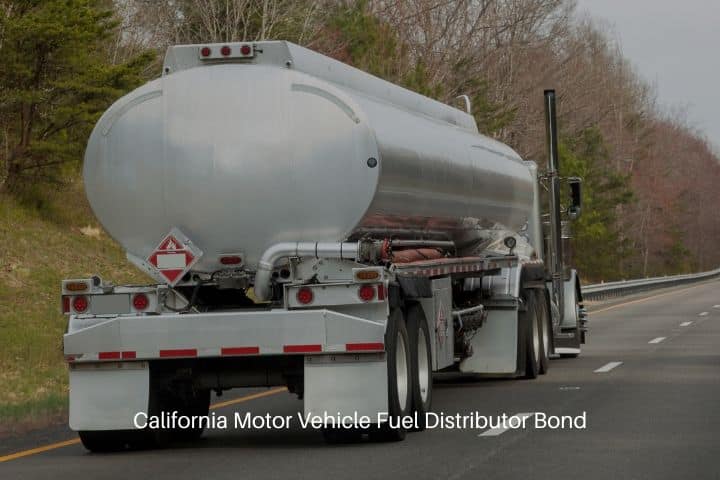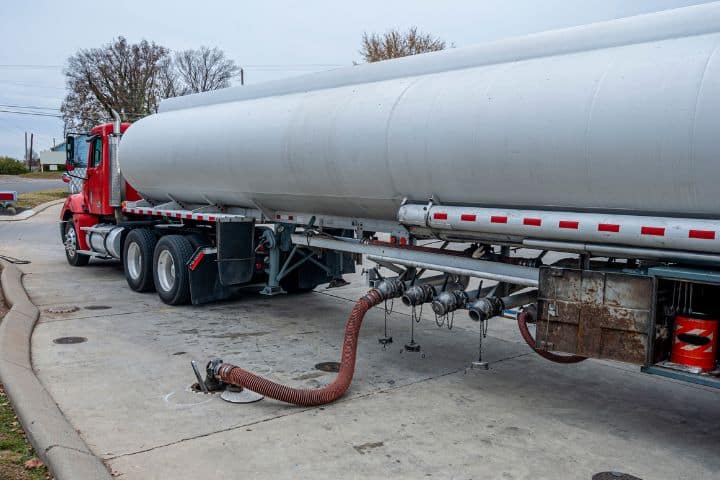
Get An Instant Quote on California Motor Vehicle Fuel Distributor Bond Now

In California, operating as a motor vehicle fuel distributor comes with certain responsibilities and regulations. One important aspect of these regulations is the requirement to obtain a Motor Vehicle Fuel Distributor Bond. This bond serves as a form of protection for the state and consumers, ensuring compliance with laws governing the distribution of fuel. Let’s delve into what this bond is, why it’s necessary, and how it works.
The primary purpose of the Motor Vehicle Fuel Distributor Bond is to safeguard the interests of the state and consumers. By obtaining this bond, distributors commit to complying with all applicable laws and regulations regarding the sale and distribution of fuel. It acts as a financial guarantee that the distributor will fulfill its obligations, including paying taxes and adhering to environmental standards.
When a fuel distributor applies for the bond, they pay a premium to the surety company. This premium is typically a small percentage of the total bond amount and is based on factors such as the distributor’s creditworthiness and business history. Once the bond is in place, the distributor can conduct business within the state legally.
If the distributor fails to fulfill its obligations, such as failing to pay required taxes or violating fuel distribution laws, a claim can be filed against the bond. The Obligee (the state) can then seek compensation from the surety for any financial losses incurred due to the distributor’s actions. The surety will investigate the claim and if it’s found to be valid, they will provide compensation, up to the full amount of the bond. However, the distributor is ultimately responsible for reimbursing the surety for any funds paid out on their behalf.
The amount of the Motor Vehicle Fuel Distributor Bond required varies depending on factors such as the type and volume of fuel distributed by the distributor. The California State Board of Equalization sets the specific bond amount based on these factors. It’s essential for distributors to obtain the correct bond amount to ensure compliance with state regulations.
Additionally, distributors must meet certain requirements to qualify for the bond. These requirements may include providing proof of financial stability, maintaining appropriate licenses and permits, and demonstrating a history of compliance with fuel distribution laws.

While obtaining a Motor Vehicle Fuel Distributor Bond may seem like an additional administrative burden, it offers several benefits for distributors:
The California Motor Vehicle Fuel Distributor Bond plays a crucial role in regulating the distribution of fuel within the state. By requiring distributors to obtain this bond, the state ensures compliance with laws and protects the interests of consumers and the environment. While it may involve some upfront costs and administrative effort, the benefits of obtaining the bond far outweigh the potential risks of non-compliance. Overall, the bond serves as a valuable tool in promoting transparency, accountability, and responsible business practices within the fuel distribution industry in California.
A Motor Vehicle Fuel Distributor Bond is a type of surety bond required by the California State Board of Equalization (BOE) for individuals or businesses engaged in the distribution of motor vehicle fuel. Simply put, it’s a legal agreement among three parties: the principal (the fuel distributor), the obligee (the state), and the surety (the bond provider).
While having a history of financial difficulties may present challenges, it doesn’t necessarily disqualify a distributor from obtaining a bond. However, the surety company may impose stricter terms or require additional financial documentation to mitigate the perceived risk. Distributors in such situations should work closely with the surety provider to explore available options and demonstrate their ability to meet bond obligations.
Operating without the required bond is a serious violation of California law and can result in severe consequences for the distributor. Penalties may include fines, license revocation, and legal action by regulatory authorities. Additionally, conducting business without a bond exposes the distributor to increased financial risk, as they would be personally liable for any damages or losses incurred due to non-compliance.
While a traditional surety bond is the most common option, there may be alternative forms of financial assurance accepted by the California State Board of Equalization. These alternatives could include cash deposits, letters of credit, or self-bonding arrangements for distributors with strong financial standing. However, it’s essential to consult with regulatory authorities or legal experts to ensure that any alternative options meet the requirements and provide adequate protection.
Axcess Surety is the premier provider of surety bonds nationally. We work individuals and businesses across the country to provide the best surety bond programs at the best price.